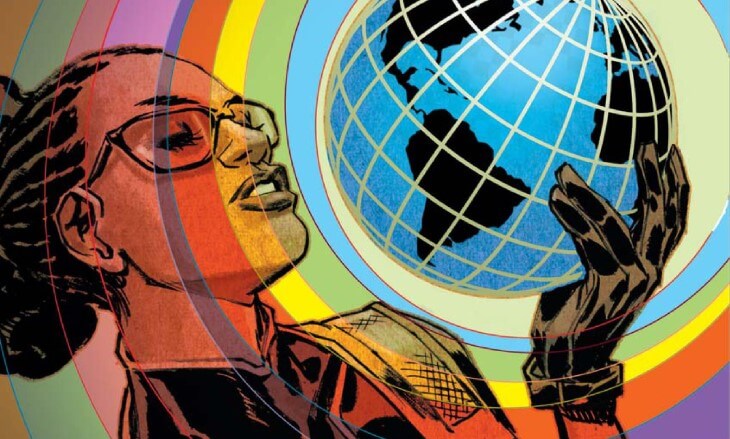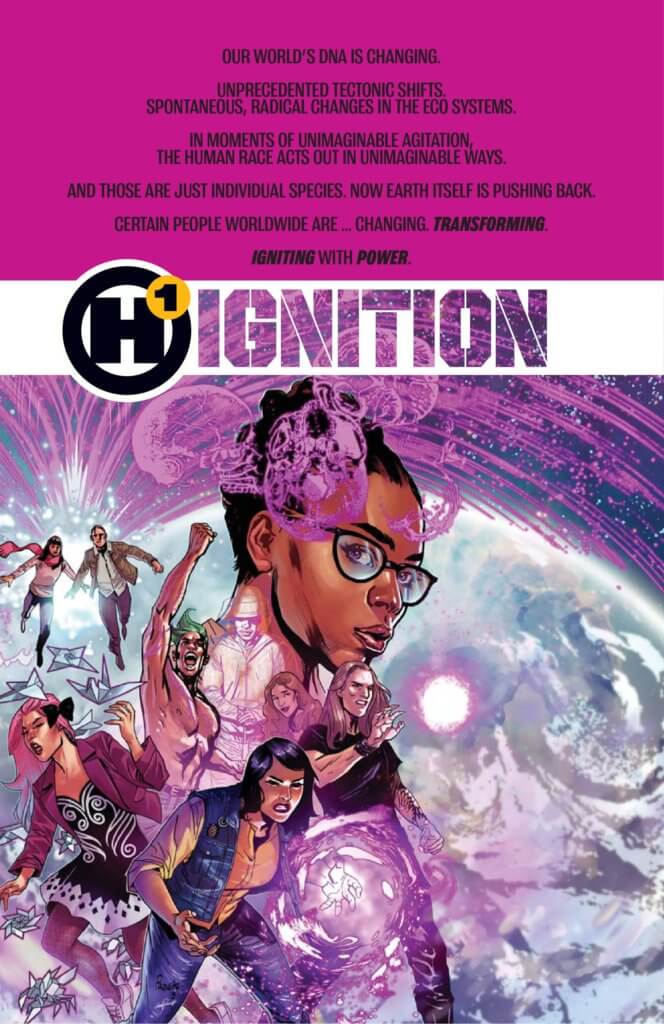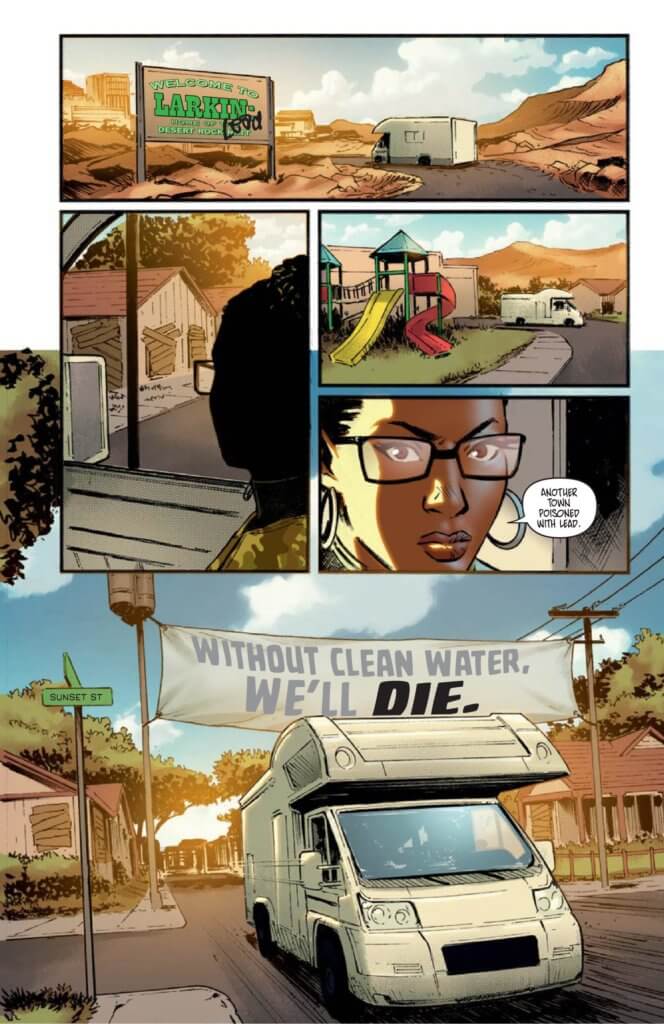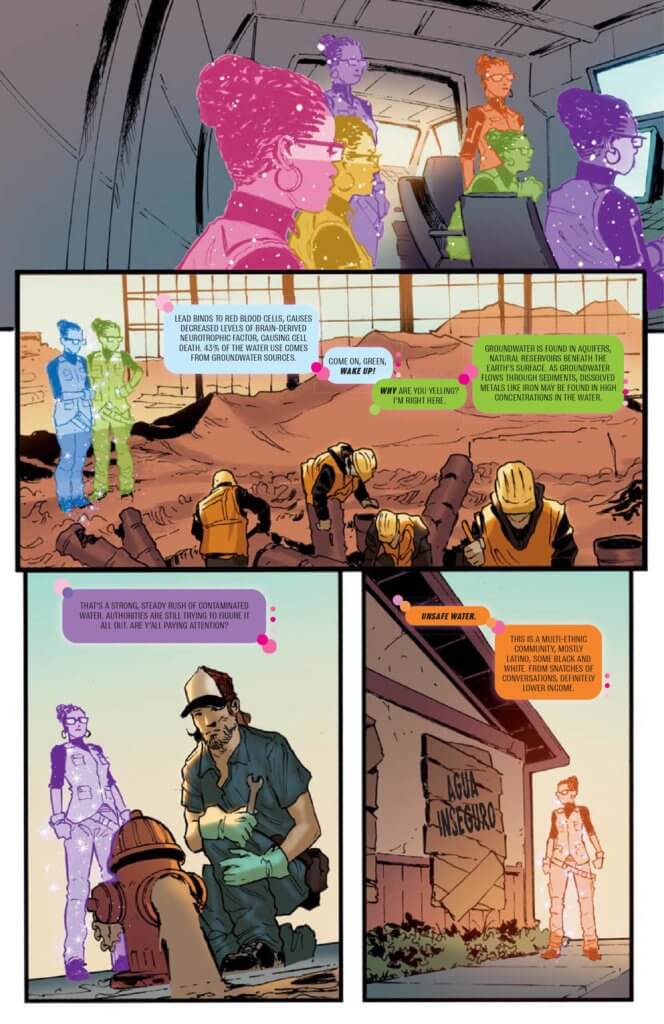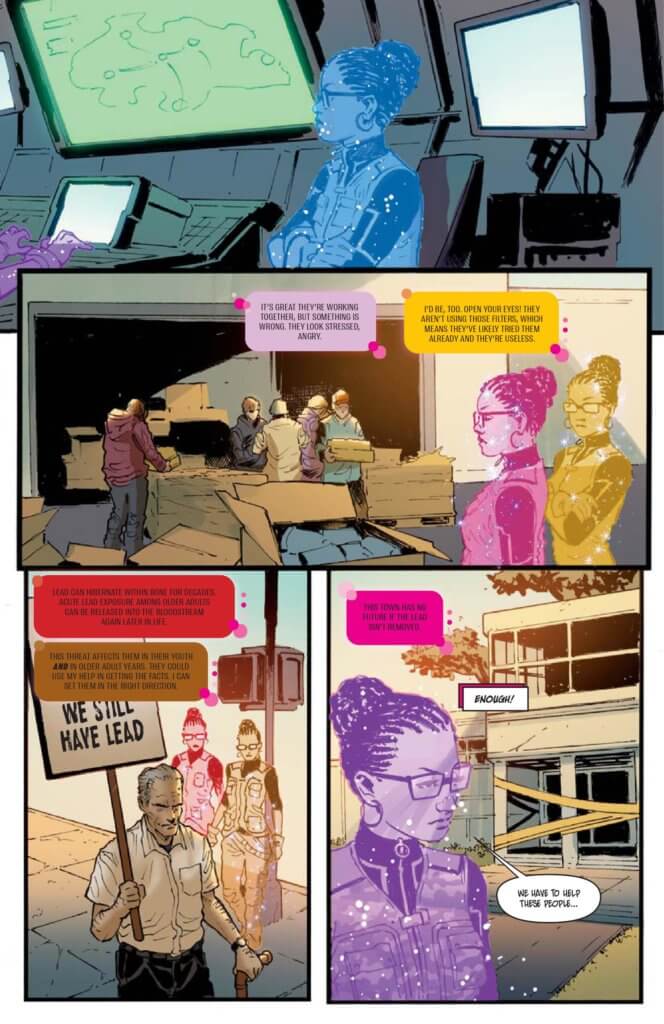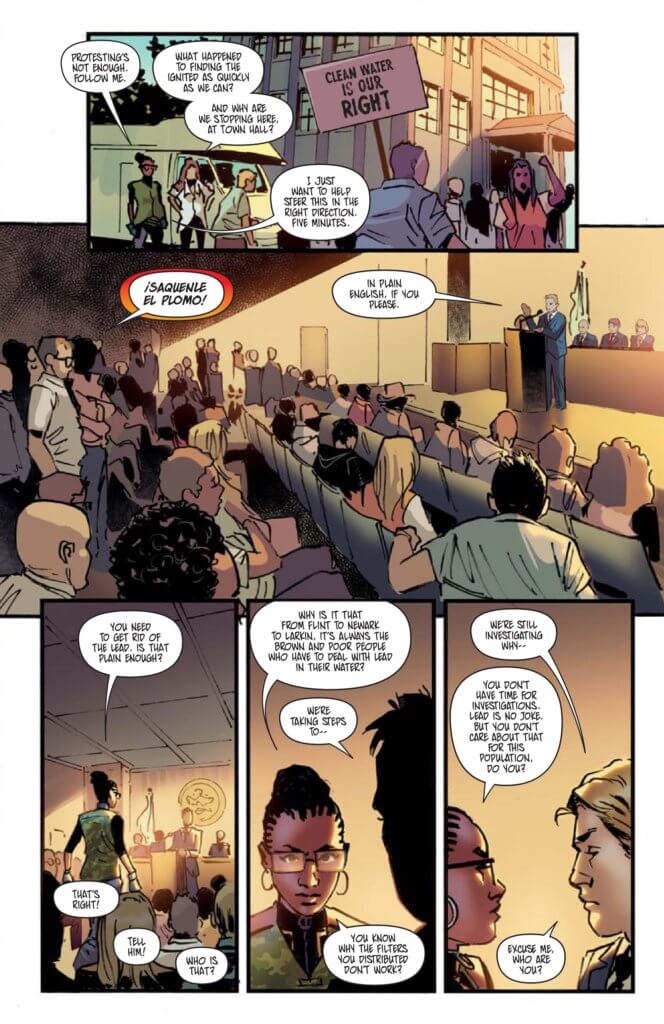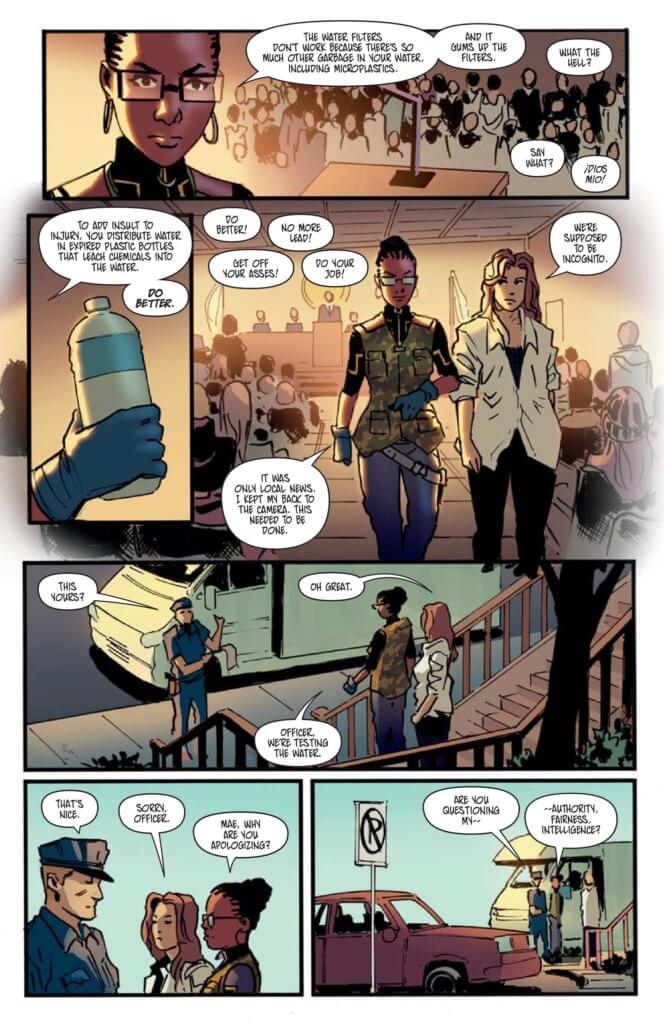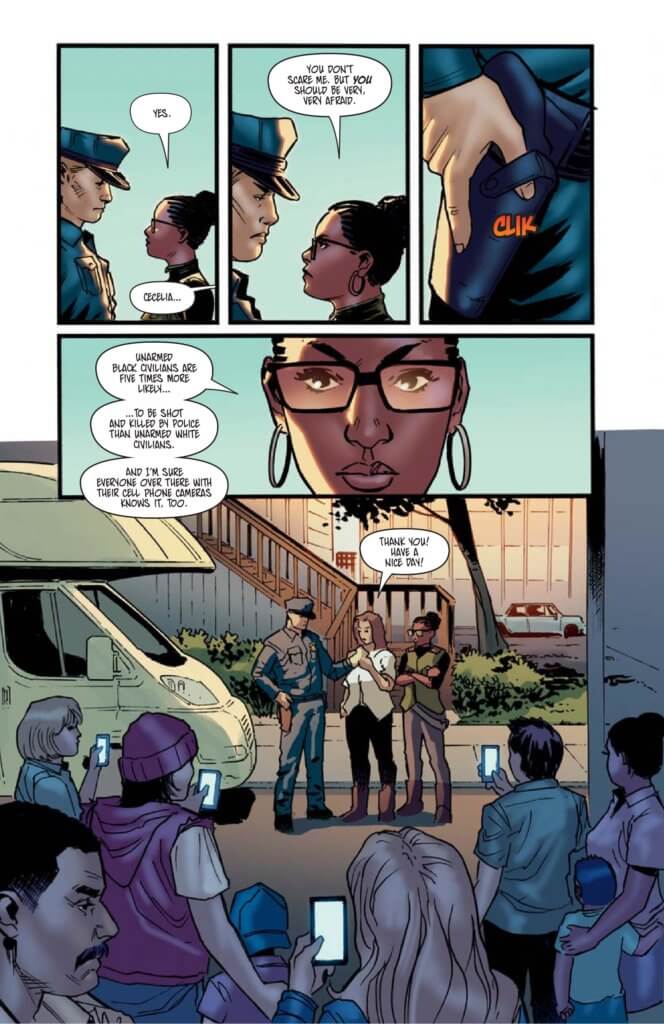Melting icecaps, raging wildfires and diseases,war—in the world of OMNI, the Earth has had enough. It’s responding to the constant onslaught humans inflict upon it by fighting back. Does one of those ways of fighting back involve granting abilities to certain people? In the first volume of the series, Dr. Cecelia Cobbins discovers her ability to think and process at unimaginable speeds with her mind splitting along the intelligence modalities. This “ignition” of her superhuman abilities occurs during an extremely traumatic and high-stress situation, and, Cecelia discovers, she’s not alone.
Taking over the writing reins in OMNI Volume 2: No More Hate, Melody Cooper brings her storytelling talent and activism together to intensify Cecelia’s story and her race to find more Ignited. But there are many forces working against her and she’s not sure if she can trust anyone, including herself. Here, Cooper takes a moment to answer a few questions about OMNI Volume 2 for WWAC.
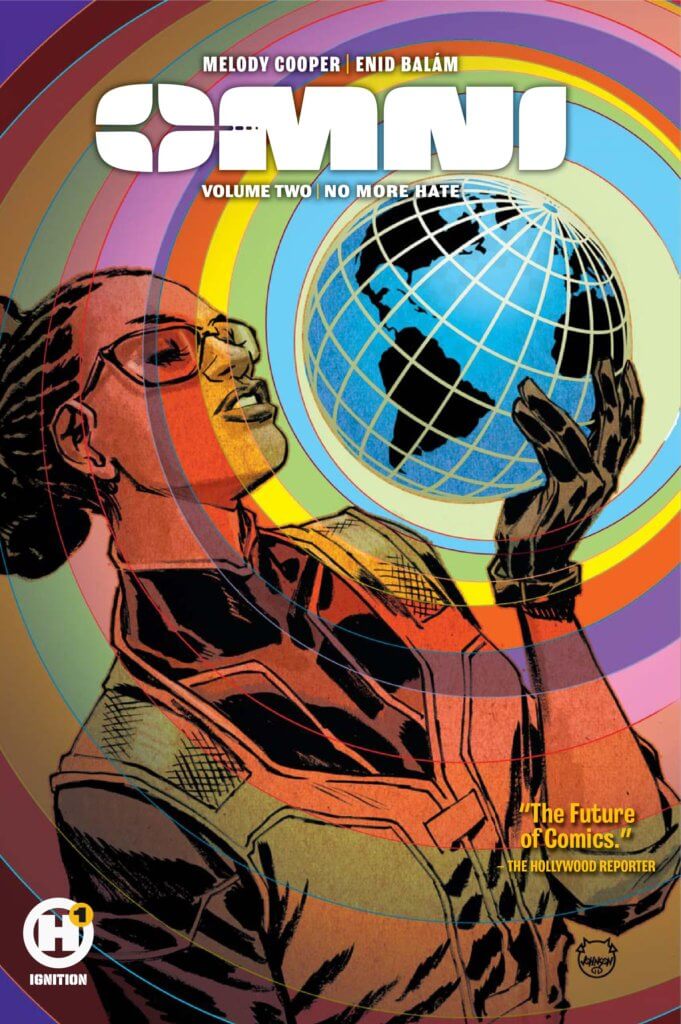 Much of your work has been in television, stage, and film. What enticed you into writing comics?
Much of your work has been in television, stage, and film. What enticed you into writing comics?
I grew up reading them (X-Men, Fantastic Four, Swamp Thing, Watchmen, Sandman) and my brother used to write for Marvel. I love how comic books are essentially like storyboards that are used for film. And I’m not constrained by budget on special effects, locations, costume. I can let my imagination soar.
You are stepping into this story with volume two. What were your thoughts on the first volume? What personal and creative elements have you brought to the table with the second volume to both develop OMNI on its intended trajectory while making it your own?
I pitched my ideas for Volume Two based on the origin story of Cecelia and the Ignited before all of Volume One was completed. The wonderful writer Devin Grayson was a great guide on my first issue and encouraged me to lean in on the way I wanted to develop Cecelia and “go ahead and fly.” Her work was a great springboard to where I wanted to go.
I’m a social activist and I was able to bring more of that to the story, as well as delving into the personal side of Cecelia and the complexity of what it would be like to deal with super intelligence.
Your storytelling style shifts away from some of the quirkier elements of the first volume, such as Mae’s comic interludes, giving OMNI a much darker intensity. Why did you choose to make this tonal shift?
I love Mae and her quirkiness, but between climate disaster, economic disparities and police brutality, I sensed there was an opportunity to address issues that are relevant and important and that I wanted to explore. And I wanted to give Mae more direct agency. As it turns out, I wrote Volume Two before George Floyd, and before the Capitol Insurrection and the spotlight on the rise of White Supremacy groups’ infiltration of police departments and the
military. Some would say it was prescient, but all the signs were already there.
Cecelia spends most of her time in uniform, analyzing every angle of every situation, but in this volume, you give her a bit of downtime to spend with family. She even gets a moment in casual clothes! Why was it important to you to include these scenes?
Yes, absolutely. Cecelia is human. I wanted to make sure we saw that and that she would be relatable. She has faults, and even with her super intelligence, she makes mistakes. Part of her journey is to become more aware of that and realize that she can’t do everything alone. She needs her family, friends and other ignited individuals. Also, too often, we don’t see the personal side of Black main characters in TV, film or comics. I wanted to build out that
nuance and reality.
The relationship between Mae and Cecelia has evolved in your chapters. There are some stressful moments for both of them, but their bond holds true throughout the series. Did you call on any personal inspiration for the depiction of their relationship?
Now that I think of it, my relationship with my brother. We’ve been through thick and thin, disagreements, sibling rivalry. We’ve marched on protests side by side, yelling out protest calls together that were echoed by huge crowds. We saw both our parents through their transition when they passed. We support each other’s creative efforts and call each other to task on things we aren’t aware of. That’s a little of the basis for the connection between Mae
and Cecelia.
In light of recent events in U.S. news, how do you feel now about the story you are telling?
I feel it’s absolutely necessary. Sometimes it feels uncanny. Often, I wish my stories weren’t so relevant and that the news didn’t catch up to what I believe is true. For a long time, I’ve been saying that we’ve ignored things like climate change and the rise of White Supremacy at our own peril. I don’t think we can shy away from the pressing issues in the world in our creative work. Not everything has to deal with it directly, but for me, it is part of the fabric of
our lives, and there’s a way to tell it while also holding joy, love and hope in our sights.
The second volume of OMNI Volume 2: No More Hate is available this month from Humanoid. You can check out a preview below:

